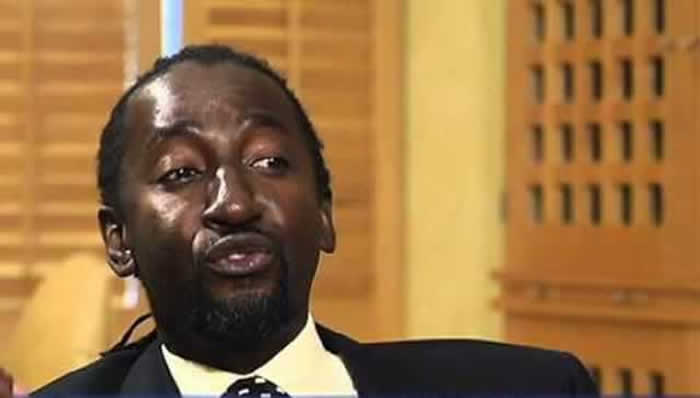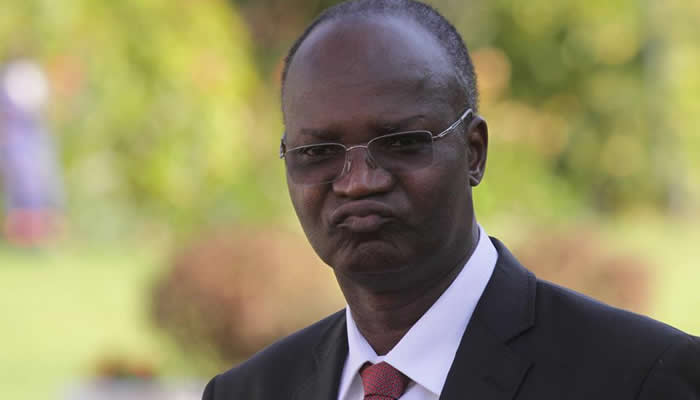You behaved like demigods during your time: Magaisa reminds Jonathan Moyo
"For example, if their word was law, they do not expect anyone to challenge their views. Rather, they expect everyone to obey their commands." Alex Magaisa
Exiled former cabinet ministers like Jonathan Moyo and others abused human rights defenders, journalists, opposition politicians and behaved like demigods before they were overthrown by a coup in November 2017, says constitutional law expert Alex Magaisa.
Magaisa, in his latest Big Saturday Read (BSR) titled Post-Power Syndrome unpacked behaviors of people who are removed from power unexpectedly. His article appeared to target exiled G-40 members like Jonathan Moyo, Patrick Zhuwao, Walter Mzembi and Saviour Kasukuwere among others who were toppled from government after the November 2017 military coup that ousted late former President Robert Mugabe.

Zhuwao took to Twitter to challenge Magaisa’s BSR saying it targeted his colleague Moyo after his advice to opposition MDC Alliance leader Nelson Chamisa to dump the idea of purchasing a bulletproof car and use US$ 120,000 raised by supporters to prepare for the 2023 elections.
“Prof @Wamagaisa’s BSR on post-power syndrome appears to target @ProfJNMoyo in particular but mentions @Hon_Kasukuwere & myself in a weak attempt to make the article appear to be a conceptual piece although it is an ad hominem attack on @ProfJNMoyo,” the former Youth minister said in one of his tweets.
Responding to Zhuwao, Magaisa accused the G-40 members of exercising ‘cruelty’ against opponents during their time in government. He reminded them of the abuse perpetrated against late MDC founding leader Morgan Tsvangirai and the abduction of activist Itai Dzamara some six years ago when they were in government.
“@PatrickZhuwao you say I want to silence you and your friend, Prof Jonathan Moyo. I have no such power. You silenced yourselves by the egregious abuse of power during your time in govt. You lost the moral authority to speak on issues that you now claim to be champions of,” Magaisa said.
“Check your friend’s record when he was Information Minister & how many journalists, media houses and citizens he mocked & silenced when he had the power to promote freedom. Daily News press bombing, Capital Radio, ZBC journalists, foreign journalists like Andrew Meldrum.
“You behaved like demigods, as if power would not end. And I haven’t even mentioned the abuse of Morgan Tsvangirai, the name calling & the disgusting, cruel and hurtful words when Itai Dzamara was abducted and caused to disappear in 2015, when you were all in government.”

Magaisa claims the G-40 members were failing to deal with the ‘post-power phase’ hence they were using blackmail against whoever criticizes them.
“And even now, you both behave like you have title deeds to name-calling. I wanted to show that you have not changed, notwithstanding the pontification over the last 4 years of exile. You’re still the same vile characters who revel in using uncouth language towards others.
“You clearly haven’t come to terms with losing power. And your conduct in recent days confirms what I (and probably others) always suspected: that if given another chance in or near power you will be just as vile & dangerous as you were during the Mugabe regime.
“The axe might forget, but the tree never does. It’s tough and traumatic to be in exile; to be unable to return home because kwakaberekera ngwena. Humility is an underrated but beautiful thing. Respect the people that suffered abuse. Deal with the reality of post-power phase,” he said.
Zhuwao, however, accused Magaisa of being “allergic to the truth” and urged his colleagues to ignore him.
“Consequently, I urge @ProfJNMoyo to ignore the rantings of those who are allergic to the truth even if that truth upsets their sycophantic sensibilities. I also urge @Hon_Kasukuwere & @waltermzembi to continue with your sterling efforts to advise regional leaders on Zimbabwe,” he said.
In his BSR, Magaisa narrated how Tsvangirai and his team overcame the post-power phase when they controversially lost 2013 elections and their subsequent removal from government after the end of unity government.
“The challenge is one of readjusting to the realities of the post-power phase. I have observed that people follow power, but once that power is gone, people disperse and follow new sites of power. When Morgan Tsvangirai was the Prime Minister, the phones never stopped ringing. Email boxes were overflowing with requests, invitations, and offers.
“But after the 2013 elections, the phones rang less and less, and the email inboxes were less busy. Privileges that came with the high office no longer existed. It was important for everyone to readjust to the new realities, but thankfully most people had been mentally prepared for that eventuality. But not everyone is always prepared for the post-power phase,” Magaisa said.
He added: “A person suffering post-power syndrome might show by how they conduct themselves in society. Since they are mentally they are still in power, they might act as if they are in power. Since they think they are still in power, they expect to be treated like people who are still in power.
“For example, if their word was law, they do not expect anyone to challenge their views. Rather, they expect everyone to obey their commands. In their minds, they are still relevant, and they try hard to assert their relevance.
“They might arrogate leadership roles in the community, declaring themselves to be the leaders even without seeking the other members’ consent. Their general tendency is to do nothing except direct operations, even in areas that are best left to others,” Magaisa wrote. Nehanda Radio






